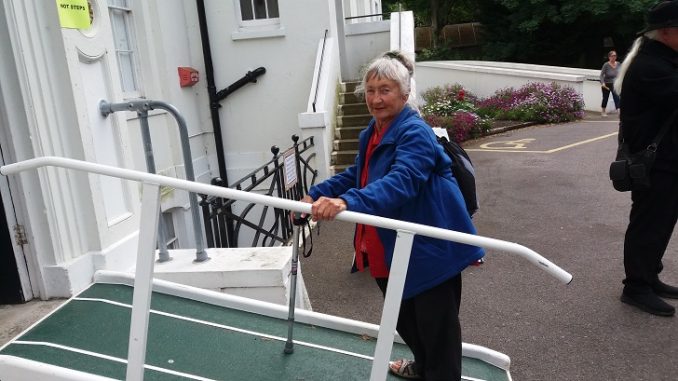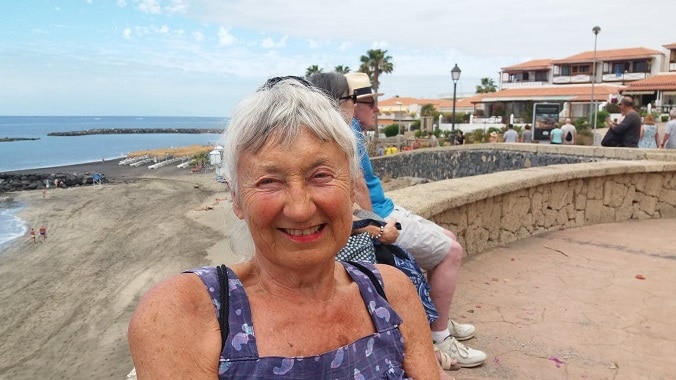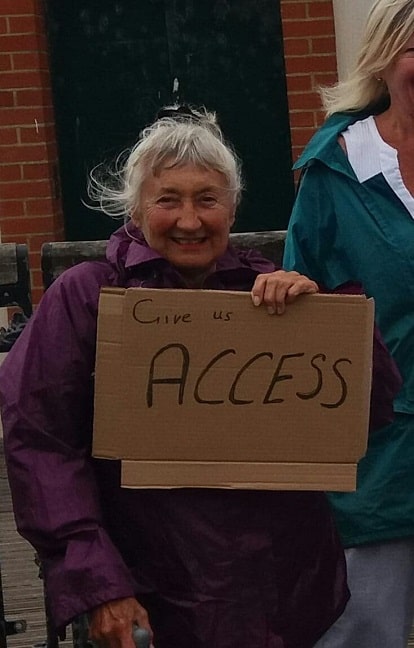
Would you call me a cripple? I can’t walk without a stick, my bones are crumbling and the next step – might be my last – is into a wheel chair. Feeling sorry for me? A bit guilty you didn’t contribute to any of the disability charities?
Would you feel differently if you thought I was getting lots of state benefits? Would I deserve them?
Does the word itself make you uncomfortable?
In 1952, aged seven, I became a child “crippled by polio”.
At the time this was seen as a factual description and generated patronising guilt in the general population.

Newly invented physiotherapy made sure I walked again, but gravity and time take their toll on weak muscles and now I’m a disabled pensioner.
But in my lifetime the word “cripple” took on a terrible set of extra meanings – not quite human, stupid, definitely not something you wanted to be!
The last time anyone called me that was when an elderly friend fell over while she was with me. She called for help and explained that I couldn’t lift her up as: “she’s a cripple!”
The word went through me like a blade.
I thought I was looking quite normal at the time and now here I was labelled as really inferior, and noticeably different from normal people.
In fact a lot of people would have found it hard to pick up someone four stones heavier than themselves, but, it seemed, I was especially unable as my body was defective in some way.

The 1970s and 80s saw vast changes in equalities legislation – women were supposed to be paid the same as men and cripples got a new name “disabled people” – and there was a big change in attitudes. Cripples got help with mobility and funding to lead a more normal life.
But as the economy faltered and austerity and belt tightening was seen as the answer, disabled people were seen as eating up too many state resources.
A new term was coined: “benefit scrounger”. Headlines in the tabloid newspapers highlighted the people who had pretended to be disabled to get state benefits: the man in a wheelchair who was seen going dancing, the woman working while claiming long term illness assistance etc etc.
The disabled are easy targets. Most are grateful for any help they get and many are scared to grumble.
But the steady erosion of help for the disabled is taking an almost Victorian turn. People are dying waiting for suitable housing or having their carer hours cut so they can’t eat properly, or have to go to bed to keep warm because they can’t pay their gas bill.
Filling in the endless intrusive forms to get the help you’re entitled to is immensely stressful – I know someone who killed herself because filling in the forms and waiting to be assessed was too much for her.
I have a friend who is dependent on a wheelchair because she has MS. She has to prove all the time that she can’t work.

But disabled people also have to deal with the attitudes that have been encouraged to grow, that we might now be burdens on the taxpayer and we don’t deserve to be helped.
Why put a ramp on a public building when only two per cent of the population might need it? Why give a mobility allowance to someone who is too decrepit to go to work anyhow?
Well, the answer is that we are still a rich country! We can choose to spend our wealth looking after the vulnerable, old and disabled if we want to.
And if government won’t do it, we cripples have to redefine how we think of ourselves. We have to rid ourselves of meek gratitude and demand that we are included in every aspect of life – especially in politics.
Let’s fight for disabled people to have a real say at every level. Acknowledge that we are the main victims of austerity. Give us power!
(A must read on this topic is “Crippled: Austerity and the Demonisation of Disabled People, by Frances Ryan)

